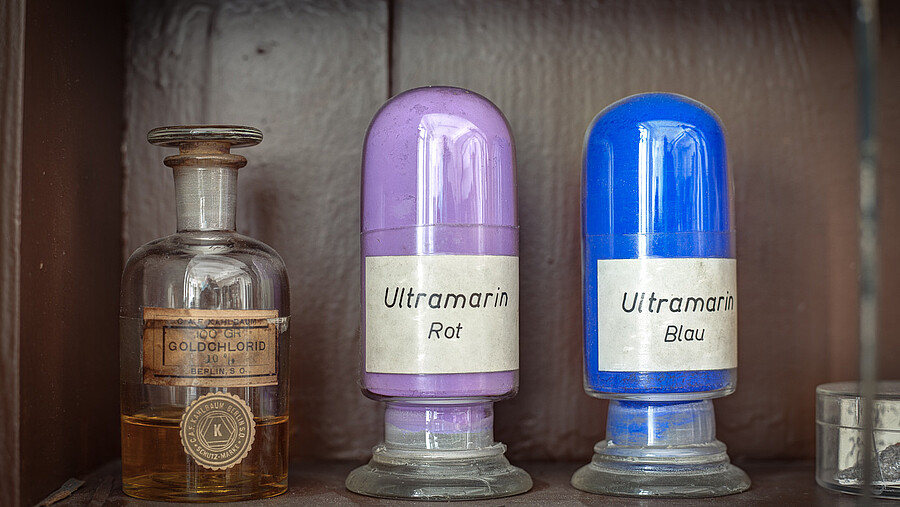Chemistry
(Bachelor of Science)
Profile
German HZB: none
International application: German C1
Find out more
Stay abroad possible, but not obligatory.
Short Description
Would you like to know how oil can be turned into a life-saving medicine, and how this medicine works in the human body? Are you interested in knowing what summer smog is composed of? Can you imagine filling your car’s fuel tank with pure hydrogen instead of petrol? All of these questions concern chemistry. Chemical scientists investigate what materials consist of, what properties they have, and how they react with each other. The basic methods used in chemistry are analysis and synthesis.
The classical subjects of inorganic, organic, physical and technical chemistry are represented by their own institutes at Leibniz Universität Hannover. However, the interaction of the different subjects with each other and with other disciplines plays an increasingly important role. In Hannover, research in chemistry focuses on the core areas of materials chemistry and natural product chemistry/technology.
Course Content
- Analytical chemistry
- Inorganic chemistry
- Organic chemistry
- Physical chemistry
- Technical chemistry
With a Bachelor’s degree in Chemistry, graduates are qualified to enter the labour market. An alternative is to transfer to a Master’s degree programme. In the first semesters of the Bachelor’s degree programme, students are given a theoretical and practical grounding in analytical, inorganic, organic, physical and technical chemistry. During the first two semesters in particular, students also take a wide range of subsidiary subjects, such as mathematics and physics, as well as toxicology and law for chemical scientists at a later stage. In addition, students can specialise in a compulsory elective area of their choice (Biochemistry, Food Chemistry, Theoretical Chemistry, Quantum Theory or Protein Chemistry) and take optional subjects (foreign languages, courses for relevant computer programmes).
Practical training features strongly in our Chemistry degree programmes. About half of the time is devoted to free and structured practical work. Industrial experience outside the university is not required.
Study abroad is not compulsory, but may be undertaken within the EU Erasmus Programme, for example.
- For studying chemistry, a basic knowledge of natural sciences (especially physics) and mathematics is required. Students of chemistry should enjoy experimenting; they should also not be frightened of handling chemicals, and should possess a certain degree of manual dexterity. They should also be capable of coordinating their time-consuming degree programme with their other interests.
- Foreign language skills are recommended (English), but not essential.
Chemistry graduates work in industry and public administration, at higher education institutions and research centres. In industry, their tasks may involve developing new chemical products, testing whether production is environmentally friendly, and planning large plants and factories. In the public sector, chemical scientists monitor the quality of food and basic commodities. They also examine fertilisers and cosmetics, investigate how polluted the environment is, and monitor the correct recycling and treatment of waste.
- Chemistry (Master of Science)
- Life Science (Master of Science)
- Philosophy of Science (Master of Arts)
Under certain conditions, admission to the following Master's programmes is also possible. More detailed information can be found in the respective admission regulations. If you have any questions, please contact the course advice of the desired Master's programme:
Admission Requirements
This degree programme is admission-free.
If you did not graduate from a German school nor have a German higher education entrance qualification (for example, the Abitur), a language certificate proving your knowledge of German is required for the application and enrollment.
Application Deadlines
01.06.-30.09. of the year for the winter semester
- First-year students (application for the 1st semester) can only enrol for the winter semester.
- Students resuming their studies and transfer students (application for a higher semester) can also enrol for the summer semester (December 1st - January 15th).
- Requirements for applications from non-EU countries:
- VPD from uni-assist OR a passed assessment test (Feststellungsprüfung) of a preparatory foundation course (Studienkolleg)
- Applications for the Studienkolleg must be submitted by July 15th.
Chemistry (B.Sc.) - Hannah talks about her studies
Please note that activating the video will result in the transfer of data to the respective provider. Further information can be found in our privacy policy.
Play video
Do you have questions about studying? We are happy to help!

30167 Hannover

30167 Hannover











